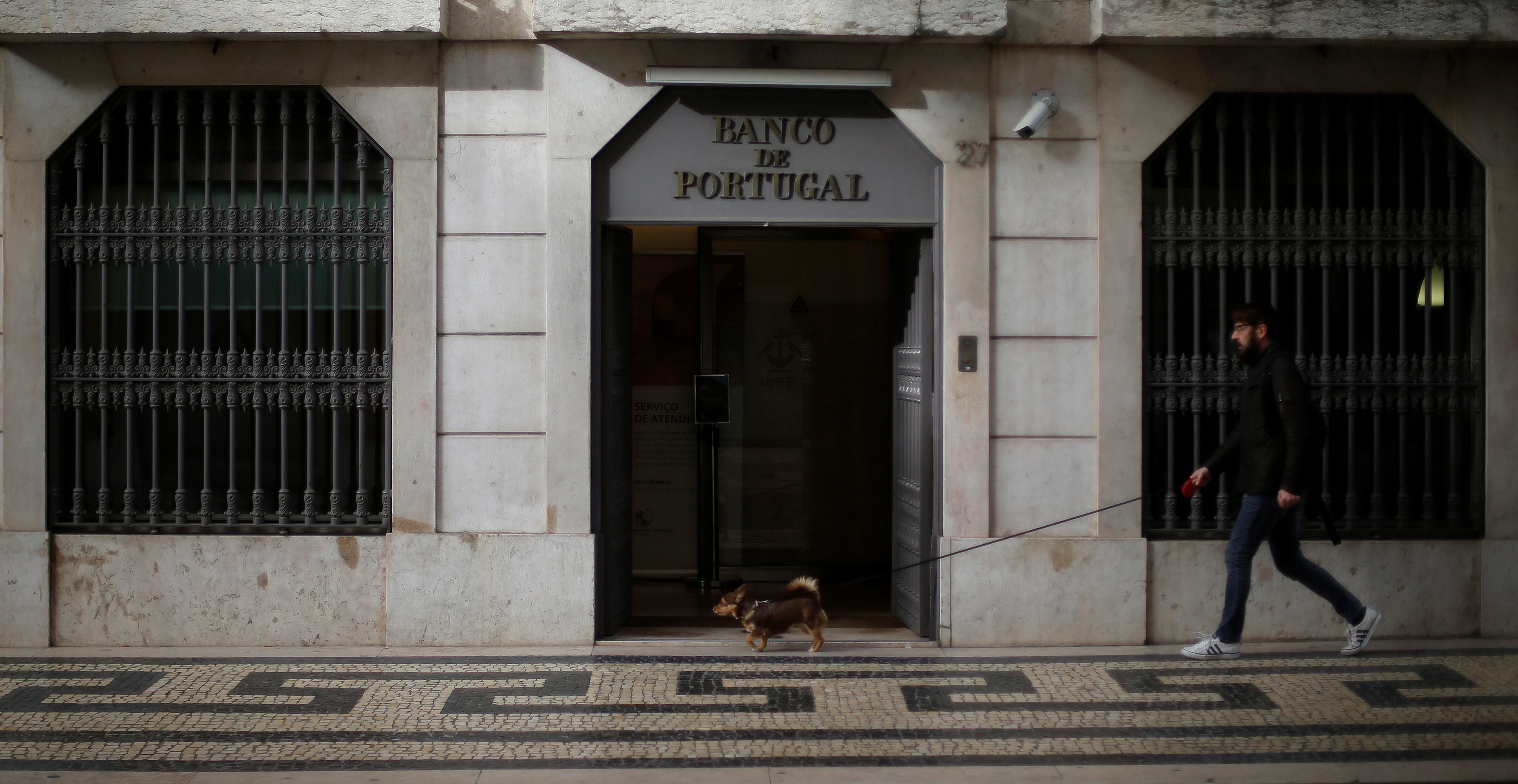

A man walks with his dog outside Bank of Portugal in downtown Lisbon, Portugal, February 21, 2017. REUTERS/Rafael Marchante/File Photo Acquire Licensing Rights
LISBON, Nov 15 (Reuters) – The Bank of Portugal has told Millennium bcp (BCP.LS), Novo Banco, Banco BPI and the local unit of Spain’s Santander (SAN.MC), to create a new capital buffer equivalent to 4% of their loan portfolios that are collateralised by home mortgages.
It said in a statement on Wednesday the measure addressing “sectoral systemic risk” would come into effect on Oct. 1, 2024, and be reviewed at least every two years.
“This instrument has a preventative nature and aims to increase the resilience of institutions in the face of a potential future materialisation of systemic risk in the residential real estate market in Portugal,” it said.
The central bank said the four banks, which account for 61% of total home loans, were using internal ratings-based approach to calculate risk-weighted assets, which leads to lower evaluations than those of banks using the standard method.
BPI is owned by Spain’s Caixabank and Novo Banco by the U.S. fund Lone Star.
According to central bank data, all lenders in Portugal brought total non-performing loans (NPLs) down to 9.69 billion euros ($10.51 billion), or 3.1% of total credit, in June from the peak of 17.9% in June 2016.
The NPL ratio of loans to individuals was just 2.4% in June, despite rising interest rates and high inflation.
($1 = 0.9217 euros)
Reporting by Sergio Goncalves; editing by Andrei Khalip
Our Standards: The Thomson Reuters Trust Principles.





